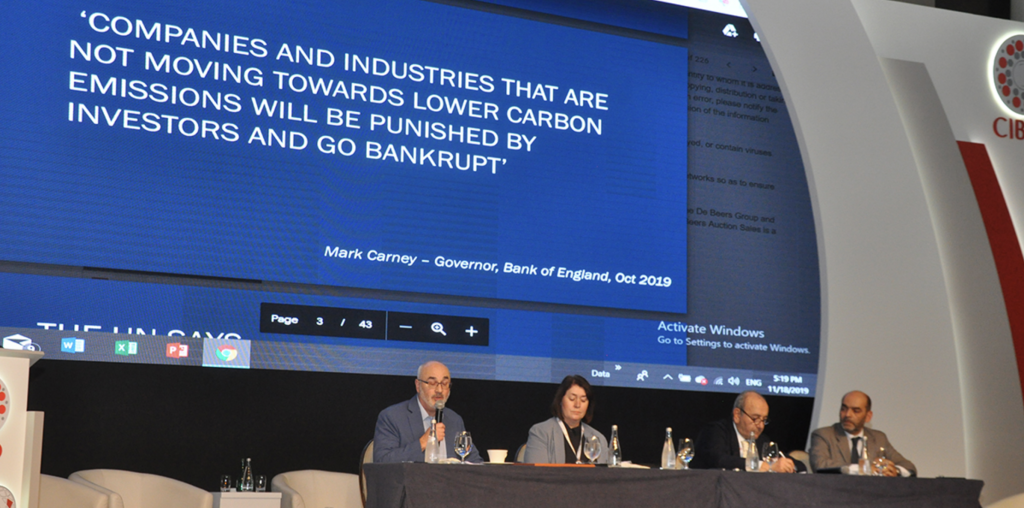CIBJO’s annual congress in Bahrain at the end of 2019 saw a busy schedule of conferences and seminars. At the Marketing and Education commission, green methods of doing business were declared critical-for major multinational corporations and local retailers alike. At the meeting, CIBJO Marketing and Education Commission president Jonathan Kendall spoke of the Jewellery Industry Greenhouse Gas Measurement (GHG) Initiative, and showed a quote from the Bank of England governor Mark Carney who said that firms and industries that are not moving to lower their carbon emissions will be punished by investors and go bankrupt.

CIBJO’s GREEN INITIATIVE
CIBJO’s green initiative, which was launched in 2014, across the whole jewellery pipeline aims to protect the world for future generations. “The world is changing so quickly. We are poisoning ourselves. I would like to encourage more organisations associated with CIBJO to sign up,” said Mr Kendall. Moya McKeown, an environmental consultant with Carbon-Expert, said the primary aim is to help companies understand the impact they have on the environmental while also securing the long-term future of firms in the jewellery sector. She told the meeting about the Jewellery Industry GHG measurement initiative Carbon Management Programme which enables firms to cut their environmental impact.
She said that companies could fairly easily measure their carbon footprint by looking at their operations overall. This includes the amount of electricity used in their buildings, fuel used by company cars and distribution vehicles, and in other operations in the supply chain. “There are practical steps,” she said. Regarding emissions, you can choose which vehicles and factory/office heating fuel you use and if you can change and reduce it. In responsible sourcing, what is the effect on climate change if you can’t get the materials.
Then there is the issue of affordable and clean energy–move to renewables from fossil fuels and look for energy efficiencies in your organisation. “Be mindful about water usage, business travel, recyclable packaging that does not need to be sent to a landfill, employees commuting to work rather than taking public transport. It’s not always possible to make the changes, but do the initial measurement to see where changes can be made,” she added.
Becoming carbon neutral starts with awareness.
Meanwhile, Mr Kendall, also president of De Beers Group Industry Services, said that without the CIBJO green initiative, “we [De Beers] wouldn’t have made all the changes. It has led me and my team to measure all the details and made us hugely aware of our carbon footprint. First understand it, and then look for ways to reduce it. It’s very motivating and I think it will be legislated soon so we want to be ahead of the curve. ”The changes include working with suppliers, improving data accuracy and quality, and staff engagement. Solar panels have been installed and there has been a big fall in carbon dioxide emissions through more efficient heating systems. ’“At De Beers, we strongly believe in leaving a positive legacy. Protect the natural world, institute ethical practices across the industry, standing with empowerment and education for girls and women, recovering carbon emissions by using technology to store carbons in rocks. The kimberlite that is dug out can store carbon dioxide which is incredible,” he said.
Mr Kendall and Ms McKeown were joined on stage by Coral Commission President and Vice President, Enzo Liverino and Rui Galopim de Carvalho. Having seen the effect of climate change on the oceans and the bleaching of coral reefs, the two men had really become strong proponents of the green initiative, Mr Kendall said. Mr Liverino said that he had seen lower business expenses as a result of the Jewellery Industry Greenhouse Gas Measurement Initiative. “It costs relatively little and, after a short time, I get the money back through the savings I have made.
”Meanwhile, Mr Galopim de Carvalho commented: “It’s not just about our business but about our lives.”
Continue reading on CIBJO: